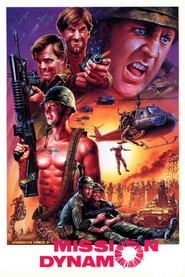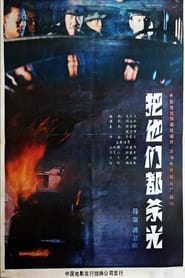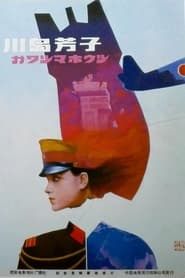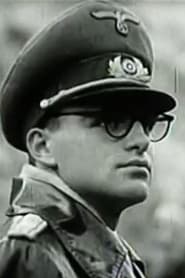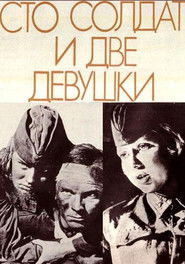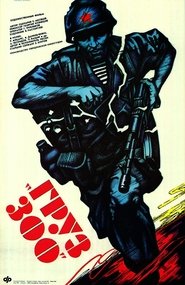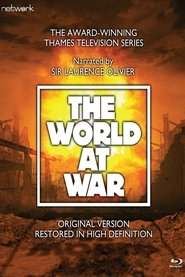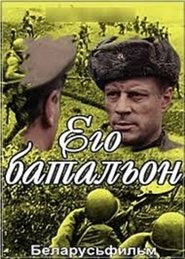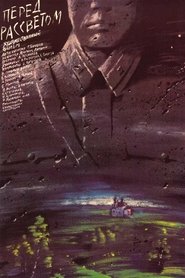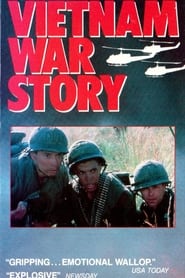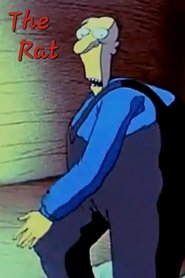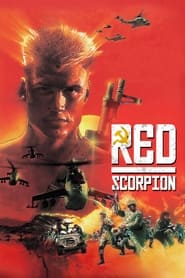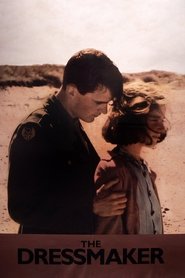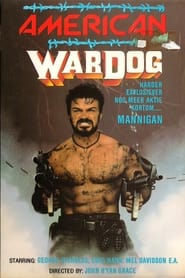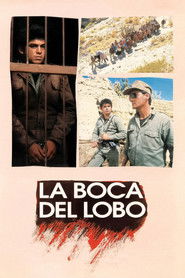New War Movies on Pantaflix - Page 299
-
Mission Dynamo
1989
Mission Dynamo
1989
The Vietnam war and terrorists led by Torosky battle it out with South Vietnamese forces assisted by the American Army. For squad leader Merlin and PFC Bill, the war has become so meaningless that they don't care anymore. Seeing their friends die, they decide to desert and soon discover that there is no sanctuary in the jungle. It's only a matter of time before Torosky catches up with them. Hong Kong cut and paste edit of the 1986 Thai Film "ลูกสาวพระอาทิตย์" (Daughter of the Sun) -
Freytág testvérek
1989
Freytág testvérek
1989
Few writers today tackle sweeping, multigenerational family sagas, work that demands vast life experience and insight. József Attila Prize–winner Árpád Thiery has done just that: his two published volumes of the Freytág Siblings’ story (1943 through the late 1960s) have been adapted by Hungarian Television into a five-part series slated for January 1989, and he’s already completed the trilogy’s final installment. Thiery describes it as a historical family novel, tracing postwar Hungary, from the Stalinist 1950s and the 1956 uprising’s aftermath to the upheavals of 1968, while celebrating freedom, truth, hope, boundless faith and innocent responsibility. -
Fen nu de gu dao
1989
Fen nu de gu dao
1989
-
Kawashima Yoshiko
1989
Kawashima Yoshiko
1989
star 6This film is based on the life of Kawashima Yoshiko, originally Manchu princess who was the 14th daughter of Emperor Xu, later brought up as a Japanese and served as a spy in the service of the Japanese Kwantung Army and Manchukuo during the Second World War. -
Dunkirk: The Battle for France
1989
The heroic rescue of the stranded British expeditionary force from the beaches of Nothern France is now the stuff of legend. How was it that a catastrophic defeat was turned into one of British history's great victories? -
The River That Never Dies
1989
star 4.6During WW2 partisans try to hide from their enemies, while old villagers mourn the deceased of the war. -
One Hundred Soldiers and Two Girls
1989
A medical instructor Alya Bulanina has become a person, communication with whom revives the soldiers’ faith that they are welcome and loved at home... -
Cargo 300
1989
Cargo 300
1989
star 3.5Afghanistan. 1986. From the border towards Kabul on a mountain road moving column of Soviet military armored vehicles. From the air it is covered by combat helicopters. The way of the column lies through the only bridge in these parts. This is well aware of the Afghan Mujahideen and under the leadership of American instructors are preparing an operation to capture the bridge and destroy the Soviet equipment blocked in this case. At this time, located in the mountains of the Soviet geological expedition undergoes a night attack spooks. The Afghan guards scatter and the geologists decide to go to Kabul. On the way, they are informed about the approaching military column, from which they will be much safer to get to Kabul. They do not know only one that has long enabled the Mujahideen in the operation to capture the bridge. -
The World at War: The Making of the Series
1989
star 10The making of 'The World At War'. Each film in the 26 episode series had to be an essay on an aspect of the war, because the length and separate aspects of the war was far too much to cover in detail. Jeremy Isaacs talks about the production process and the aims of the project. The intention of the crew that were involved with the various skills in making 'The World at War' had no desire to use film from British, German, French, Polish, Russian, Japanese, or the Americans because of their specific means of showing the winning side of a specific action. Rather, an effort was made to interview people who were not part of the establishment, but rather the common people or assistants and secretaries of historical persons. Film was researched for those films from cameras where there was no special subject, but those that would allow the viewer to make their own decisions about what they had just seen and heard. -
Его батальон
1989
Его батальон
1989
-
Above the War
1989
Above the War
1989
star 4Somewhere in North Vietnam, an American base is overrun by V.C. and a golden Buddha statue is stolen. The American high command won't have this and sends in an elite force of goof-offs to recover the item. The team (the B-TEAM!!) is to be led by Rom Kristoff and feature two white guys and two Asian guys in order to (hysterically!) trade-off who is keeping who prisoner among them in order to infiltrate enemy lines. -
Not Another Mistake
1989
-
Before Dawn
1989
Before Dawn
1989
star 5.2Wartime, summer 1941. Train carrying criminals gets under enemy fire and crashed. Out of all of the living are only a young lieutenant of the NKVD and two prisoners - the thief and repressed Communist party worker. -
Heroes Stand Alone
1989
Heroes Stand Alone
1989
Chad Everett and his crack team of commandoes are sent into enemy territory in South America to recover the black box from a crashed Air Force cargo plane. They are sabotaged every step of the way, and one by one the ruthlessness of their guerilla tactics takes its toll on the commando men. -
The Rat
1988
The Rat
1988
A tenant of a huge apartment building has a rat problem. While the news on television speaks of nothing but weapons and disarmament agreements, the rats steadily destroy his home. -
Red Scorpion
1988
Red Scorpion
1988
star 6A Soviet commando is sent to eliminate a rebel leader in Africa. Soon he finds himself doubting his mission and his loyalty. -
The Dressmaker
1988
The Dressmaker
1988
star 3.2In England during World War II, a repressed dressmaker and her sister struggle looking after their 17-year-old niece, who is having a delusional affair with an American soldier. -
Mannigan's Force
1988
Mannigan's Force
1988
star 5.5An ex-GI gathers together some of his army friends to travel to a Central American dictatorship to free some American POWs being held there. -
La boca del lobo
1988
La boca del lobo
1988
star 7.2The military anti-terrorist army takes control of "Chuspi", an unknown and faraway small village, isolated by the terrorist group "Sendero Luminoso" (Shining Path). A soldier called Vitin Luna, and other young soldiers face an invisible, perhaps superior force. Their unit is commanded by a brutal lieutenant who declares the entire village guilty of treason. In the face of this crisis, Vitin must choose between blind obedience and his own conscience.
 Netflix
Netflix
 Amazon Prime Video
Amazon Prime Video
 Apple iTunes
Apple iTunes
 Apple TV Plus
Apple TV Plus
 Disney Plus
Disney Plus
 Google Play Movies
Google Play Movies
 Paramount Plus
Paramount Plus
 Hulu
Hulu
 HBO Max
HBO Max
 YouTube
YouTube
 fuboTV
fuboTV
 Peacock
Peacock
 Peacock Premium
Peacock Premium
 Amazon Video
Amazon Video
 The Roku Channel
The Roku Channel
 AMC+
AMC+
 Kocowa
Kocowa
 Hoopla
Hoopla
 The CW
The CW
 Vudu
Vudu
 Starz
Starz
 Showtime
Showtime
 PBS
PBS
 Pantaflix
Pantaflix
 FXNow
FXNow
 Tubi TV
Tubi TV
 Kanopy
Kanopy
 Comedy Central
Comedy Central
 Crunchyroll
Crunchyroll
 Microsoft Store
Microsoft Store
 Redbox
Redbox
 Sun Nxt
Sun Nxt
 ABC
ABC
 DIRECTV
DIRECTV
 Crackle
Crackle
 Fandor
Fandor
 Plex
Plex
